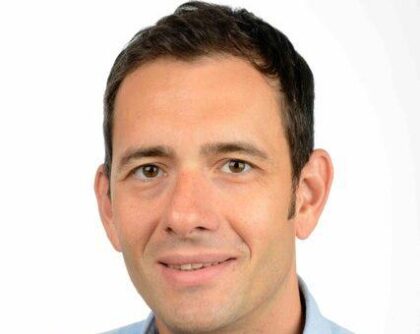Gian Michele Innocenti
Research Interests
Gian Michele Innocenti is an experimental physicist whose research focuses on characterizing novel regimes of Quantum-Chromo Dynamics by exploring collisions of ultra-relativistic heavy ions at the Large Hadron Collider (LHC). He has developed innovative analysis techniques and data-acquisition strategies to perform novel measurements of open heavy-flavor production in heavy-ion collisions. His research has shed new light on the nature of QCD matter at high temperatures, known as Quark Gluon Plasma (QGP), and the mechanisms of hadron formation in this extreme environment.
In his current research at MIT, he designs and employs new jet-substructure and correlation observables to characterize the modification of the heavy-quark parton shower in the QGP. He has recently started a new experimental program to study nuclear matter at low-x nuclei with measurements of gamma-nucleus and gamma-gamma scatterings in ultra-peripheral heavy-ion collisions. These studies will provide some of the most accurate experimental constraints on the emergence of a gluon-saturated form of nuclear matter and pave the way for future measurements at the Electron-Ion Collider (EIC). Innocenti is leading a new hardware program to exploit the CMOS technology to build a high-accuracy tracker detector for the ePIC experiment at the EIC.
Biographical Sketch
Innocenti received his Ph.D. in particle and nuclear physics at the University of Turin (Italy) in early 2014. Dr. Innocenti joined the MIT heavy-ion group in the Laboratory of Nuclear Science in 2014 as a Postdoctoral Research Associate in Prof Lee’s group. He then left for a Staff Research Physicist position at CERN in 2018. Innocenti joined the MIT Physics Department as an Assistant Professor in January 2024.
